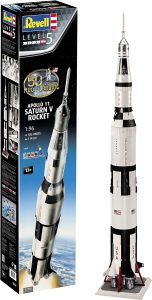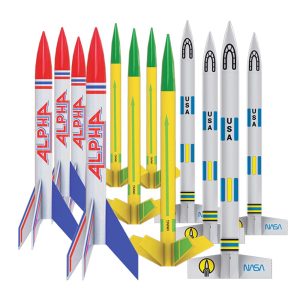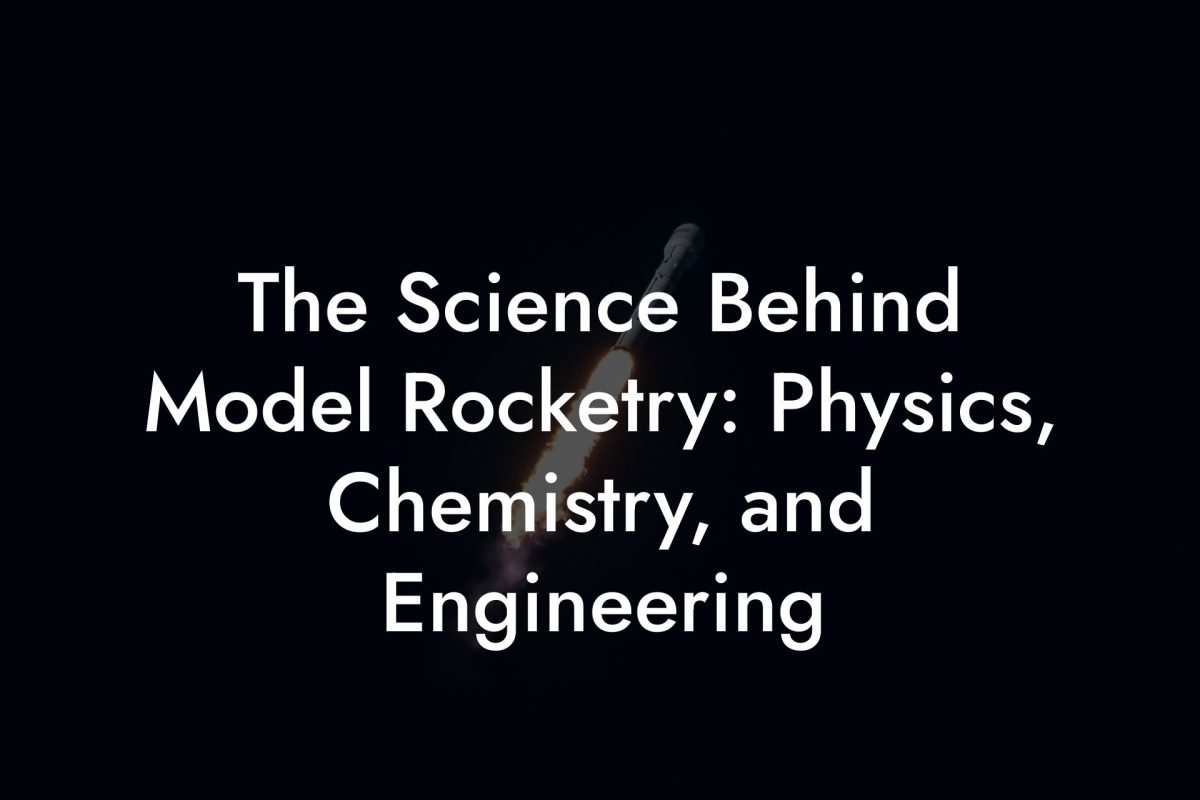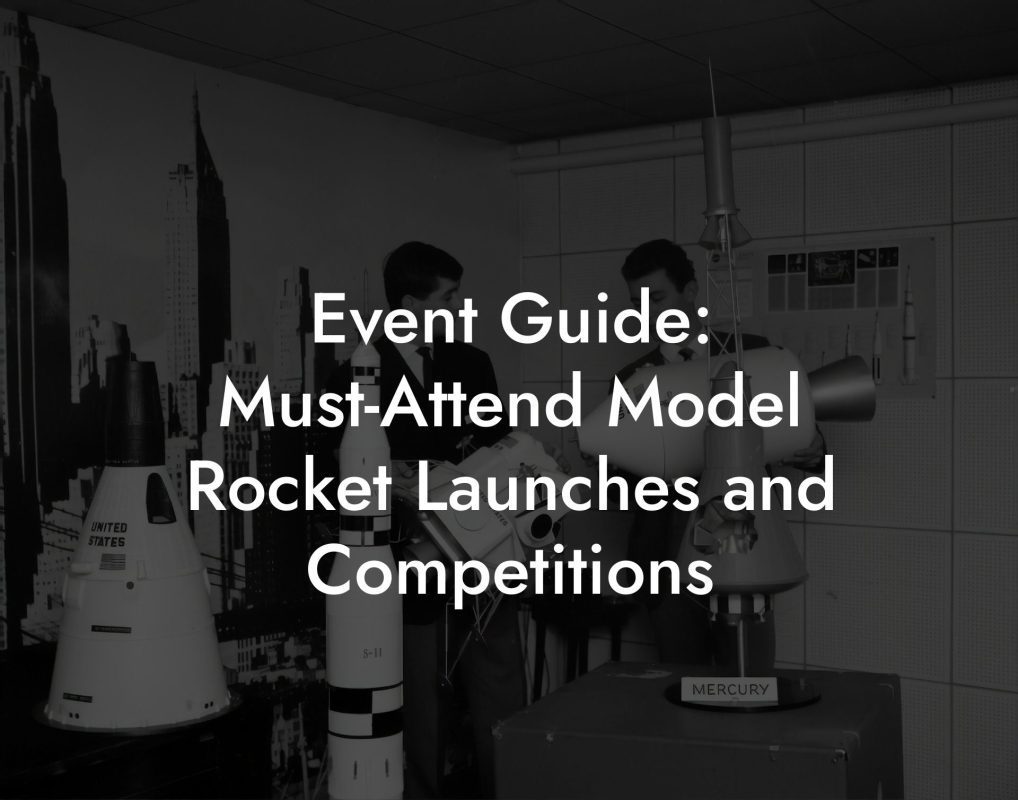Amateur rocketry is taking off in ways that few could have predicted, and local clubs are at the heart of this exciting movement. "The Rise of Amateur Rocketry: How Local Clubs are Changing the Game" explores how grassroots communities are fostering innovation, providing mentorship, and igniting a passion for rocketry among enthusiasts of all ages. Whether you're a curious beginner or a seasoned hobbyist, local clubs offer a welcoming environment to learn, experiment, and launch rockets that defy expectations.
Quick Links to Useful Sections
- Introduction: A New Era in Amateur Rocketry
- The Role of Local Clubs in Amateur Rocketry
- Club Activities: Workshops, Competitions, and Collaborative Projects
- Workshops and Training Sessions
- Launch Events and Competitions
- Collaborative Projects and Research
- Community Impact: Inspiring the Next Generation of Innovators
- Model Rocket Community FAQs: Local Clubs and Their Impact
- Your Next Launch: Connect, Compete, and Elevate Your Rocketeering Experience
Introduction: A New Era in Amateur Rocketry
In recent years, the world of amateur rocketry has seen a remarkable surge in popularity. No longer confined to isolated hobbyists, rocketry is now a vibrant community-driven field where local clubs serve as hubs of creativity, education, and collaboration. These clubs provide the resources, support, and camaraderie needed to take rocketry from a solitary pastime to a dynamic, team-driven adventure.
From hands-on workshops to competitive launches, local clubs are democratizing access to aerospace knowledge and making it possible for anyone with a passion for flight to achieve their dreams. In this guide, we’ll delve into how these clubs are changing the game, offering insights into their benefits, activities, and the community spirit that propels amateur rocketry to new heights.
The Role of Local Clubs in Amateur Rocketry
Local rocketry clubs play a pivotal role in nurturing talent and fostering innovation. They bring together individuals from diverse backgrounds who share a common interest in the science and art of rocket design and launch.
- Skill Development: Clubs offer workshops, seminars, and training sessions that help members master everything from basic assembly techniques to advanced aerodynamic design.
- Resource Sharing: Access to shared equipment, digital tools, and expert advice makes it easier for members to experiment and refine their designs.
- Mentorship: Experienced rocketeers mentor newcomers, providing guidance and support that accelerate learning and boost confidence.
- Competitive Spirit: Organized competitions and collaborative projects foster a healthy competitive environment, inspiring members to push the limits of their designs.
- Community and Networking: Regular meetings and launch events build lasting friendships and create opportunities for collaborative innovation.
Club Activities: Workshops, Competitions, and Collaborative Projects
The activities organized by local clubs are as diverse as the community itself. Here are some common activities that are making waves in amateur rocketry:
Looking For The Best Model Rocket Kits? You'll Love These:
Workshops and Training Sessions
Hands-on workshops cover everything from basic rocket assembly to advanced topics like engine tuning, digital telemetry, and recovery system optimization. These sessions provide a structured learning environment where members can gain practical experience under the guidance of seasoned experts.
Launch Events and Competitions
Regular launch events give members the opportunity to test their designs in real-world conditions, while competitions challenge them to achieve specific goals such as altitude, duration, or payload delivery. These events not only build technical skills but also foster a sense of achievement and camaraderie.
Collaborative Projects and Research
Many clubs encourage members to work together on ambitious projects, from designing multi-stage rockets to developing custom digital telemetry systems. Collaborative projects lead to innovative solutions and often push the boundaries of what amateur rocketry can achieve.
Community Impact: Inspiring the Next Generation of Innovators
The impact of local rocketry clubs extends far beyond individual launches. These communities are actively inspiring the next generation of engineers, scientists, and innovators. By hosting educational outreach programs, school workshops, and public demonstrations, clubs make aerospace science accessible and exciting for young learners.
This culture of mentorship and hands-on learning helps cultivate a spirit of innovation that can lead to breakthroughs not only in rocketry but also in STEM fields more broadly.
Model Rocket Community FAQs: Local Clubs and Their Impact
Here are some frequently asked questions about the role of local clubs in the world of amateur rocketry:
1. What are the main benefits of joining a local rocketry club?
Clubs provide hands-on training, access to shared resources, mentorship from experienced rocketeers, and a collaborative environment that fosters innovation and community.
2. How can local clubs help beginners learn about rocketry?
Through workshops, training sessions, and mentoring programs, clubs offer structured learning experiences that introduce beginners to the fundamentals of rocket design, assembly, and launch.
3. What types of competitions do local rocketry clubs organize?
Clubs often host competitions that focus on various aspects such as altitude, flight duration, payload functionality, and overall design innovation, catering to different skill levels.
4. Are there opportunities for collaborative projects in these clubs?
Yes, many clubs encourage members to work together on projects ranging from multi-stage rockets to custom digital telemetry systems, promoting teamwork and innovation.
5. How do local clubs support community outreach and education?
Clubs often participate in or host events like school workshops, public launch demonstrations, and STEM fairs to inspire and educate the next generation about rocketry and aerospace science.
6. What is the typical membership like in a rocketry club?
Membership varies widely, from young students and hobbyists to seasoned professionals and engineers, creating a diverse environment rich in knowledge and experience.
7. How can I find a local rocketry club near me?
Check online forums, social media groups, and the websites of organizations like the National Association of Rocketry (NAR) or Tripoli Rocketry, which often list local chapters and events.
8. What are the safety protocols in club-organized launches?
Clubs adhere to strict safety guidelines, including proper launch procedures, designated safety zones, and regular training on handling equipment and emergency response.
9. Can I participate in competitions even if I’m a beginner?
Absolutely. Many competitions have divisions for beginners, and clubs are supportive environments that encourage participation at all skill levels.
10. How do rocketry clubs contribute to personal and professional growth?
By offering networking opportunities, hands-on experience, mentorship, and exposure to advanced technologies, clubs play a vital role in both personal development and professional advancement in STEM fields.
Your Next Launch: Connect, Compete, and Elevate Your Rocketeering Experience
Whether you’re looking to learn, compete, or simply share your passion, the rocketry community is here to support you. Local clubs offer a dynamic environment where you can develop your skills, make lifelong connections, and celebrate every milestone along your rocketry journey.
Join a club, participate in competitions, and embrace the educational opportunities available. The world of amateur rocketry is thriving, and your next launch could be the start of an incredible adventure.
Looking For The Best Model Rocket Kits? You'll Love These:
Useful Interruption: Dive deeper into the world of Model Rockets with our most popular sections. If there is anything you think is missing or anything you would love for us to write about, just give us a shout.
- Getting Started & Basics With Model Rockets
- Model Rocket Design, Build & Customization
- Model Rocket Propulsion & Engine Technology
- Model Rocket Launch Techniques & Recovery
- Model Rocket Advanced Rocketry & Innovations
- Model Rocket DIY and Customization
- Model Rocket Equipment Reviews & Digital Tools
- Community, Competitions & Education
- Model Rocket Troubleshooting & FAQs
- Model Rocket Bonus/Seasonal & Niche Topics
A group of model rocket enthusiasts gathered at a field for their weekly launch event. Among them was Dave, a seasoned builder known for pushing the limits of hobby rocketry. This time, he had outdone himself.
“Ladies and gentlemen,” Dave announced, dramatically pulling a cloth off his latest creation, “I present to you: The Kraken!”
The crowd gasped. This wasn’t just a model rocket, it was a monster. The thing stood 8 feet tall, had six clustered engines, and was covered in enough duct tape to qualify as a classified aerospace project.
“Dave,” muttered Steve, the cautious safety officer, “Have you, uh… done the math on this?”
“Math?” Dave scoffed. “I built it in my garage at 3 a.m. with parts from eBay. This is an art piece, Steve.”
The countdown began.
5…
4…
3…
2…
1…
The engines ignited with a BOOM, and The Kraken shot up… kind of. It immediately did a violent barrel roll, narrowly missing the spectators before skyrocketing at an angle that could only be described as “legally questionable.”
The crowd collectively ducked as The Kraken flew straight over the adjacent cornfield, where Old Man Jenkins, the grumpiest farmer in town, was minding his business.
KABOOM!
The rocket disappeared behind the barn. A moment later, a flaming piece of Estes igniter wire landed at Steve’s feet. The silence was deafening.
And then, an unmistakable sound echoed across the field.
Jenkins’ shotgun being cocked.
“DAVE!!!” Steve shouted. “RUN.”
And that was the day Dave invented the first-ever biologically powered rocket booster: pure adrenaline.
To this day, nobody knows where The Kraken landed, but legend has it, it still haunts the skies, terrifying unsuspecting drones and low-flying birds.










